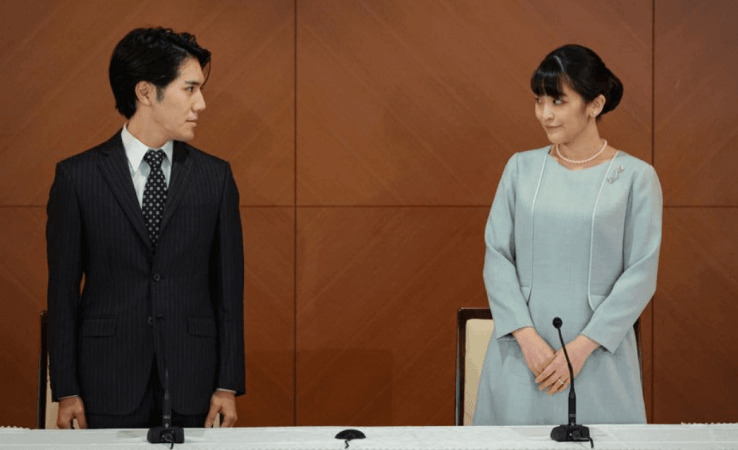On Tuesday, October 26, Princess Mako of Akishino, niece to the current Japanese Emperor Naruhito and daughter of Crown Prince Fumihito gave away her imperial status and rights as she walked into a nuptial bond with an old friend and fiance of four years, Kei Komuro.

The couple opted for a simple, registered wedding that was attended only by close family, well-wishers, followed by a press conference with select members of the media to announce their new life.
According to a Japanese media outlet Mainichi, about 100 members of the media, as well as a group of well-wishers gathered in front of the imperial residence in the Akasaka Estate hoping to catch a glimpse of the princess leaving after the couple's marriage, was registered.

Despite being a royal bride, 30-year-old Mako opted for a simple dress over the traditional kimono and hairdo reserved for noblewomen, while the groom wore a striped suit for his big day. According to Nikkei Asia, Mako also declined dowry granted to royals who leave the imperial household following intense criticism of financial trouble involving Komuro's mother.
The couple will move to New York where Komuro currently works as a lawyer with Lowenstein Sandler. However, if reports are to be believed, Mako isn't the first Japanese princess to take such an unconventional life decision.
In 2018, princess Ayako of Takamado married Kei Moriya, a 32-year-old employee of shipping company Nippon Yusen.
According to the Reuters report published in October 2018, the 28-year-old princess, the third daughter of Emperor Akihito's late cousin Prince Takamado married Kei Moriya in a traditional ceremony at Tokyo's Meiji Shrine and gave up on her imperial status.
The news report furthers that Japanese royals have the freedom to marry who they want and such has been the trend for at least three generations. The trend was allegedly initiated by Emperor Akihito who became the first crown prince to marry a commoner he met on the tennis court. She eventually became Empress Michiko.
Unlike the royal princes who are entitled to the throne, princesses in Japan aren't and if they choose to marry a commoner, they are expected to renounce their imperial status, as in the case of Ayako and now Mako.

















